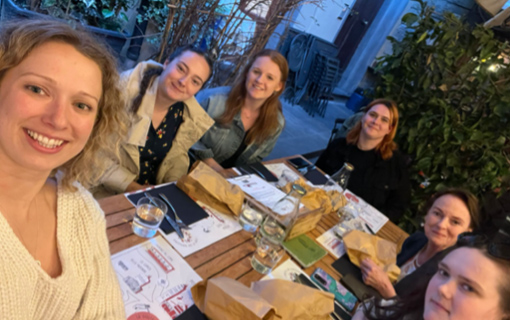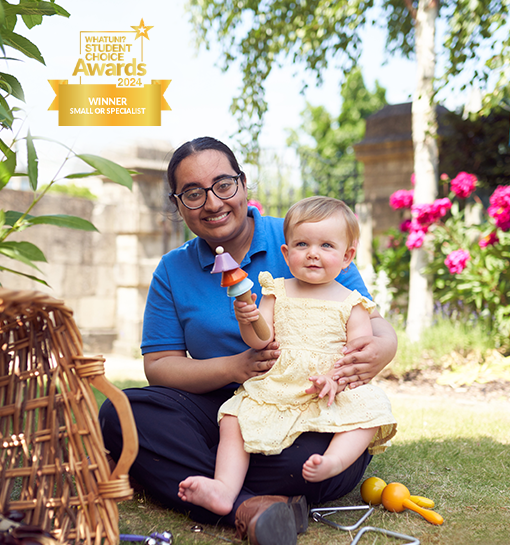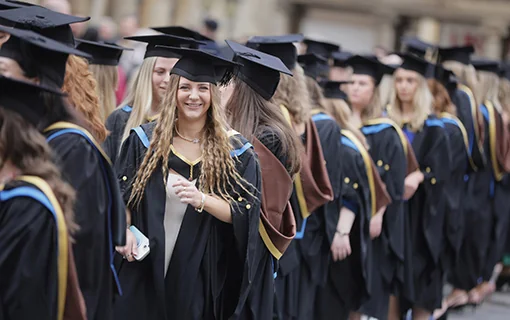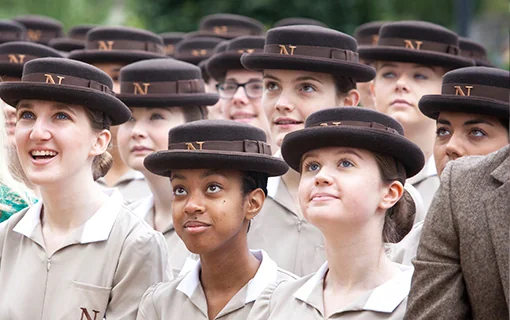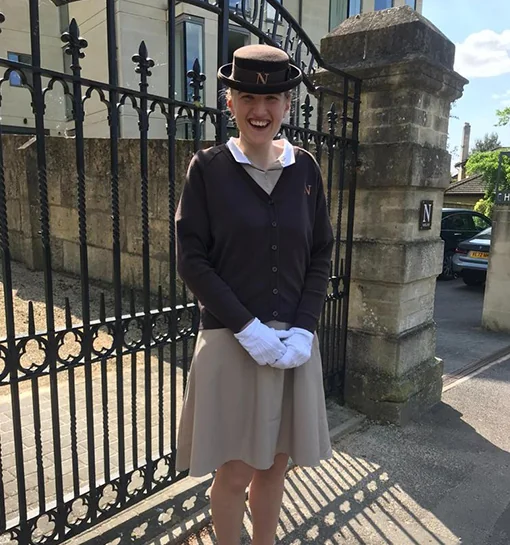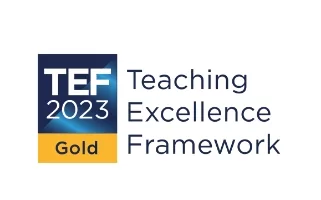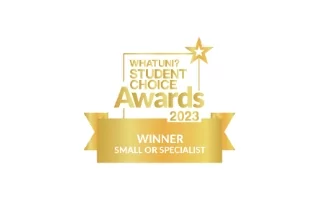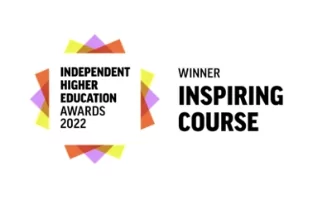Norland in Pistoia: Tippy’s travel diary
8 June 2023

In April, a small group of Norland students took part in a study visit led by Dr Rose Drury, Early Years Education Consultant and Honorary Associate at The Open University.
The group travelled to Pistoia in Italy to learn about the city’s pioneering educational approach to the early years. In particular, the emphasis that practitioners place on community, documentation and culture, with the goal of empowering children to feel they are ‘citizens of Pistoia’. Third-year student Tippy (Set 44) reflects on her learning from the trip.
“During the trip, we were able to visit several early years educational settings, and learned about the pedagogies and approaches to learning through speaking with the children’s teachers and coordinators, with Dr Rose Drury acting as our translator!
At the beginning of the trip, we were introduced to the ‘Area Bambini Gialla’ (The Yellow Area) and ‘Blu’ (The Blue Area) which represent storytelling, theatre, art, and expressive activities (where children explore and play with a wide range of materials). In addition to the nursery settings, Pistoia has areas that are conceptually designed to support the needs of families while also offering children a space of their own to explore independently.
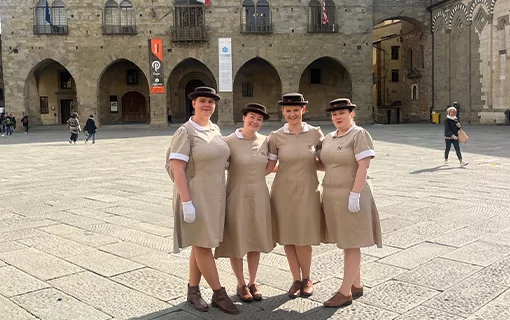
These areas are open to school groups, independent families, and parents. They help children and carers to develop specifically designed projects to support each child’s development. Pistoia has four areas, each with different themes that focus on interests such as arts, science, and symbolic learning. These are:
- Area Bambini Blu – Art and Expressive Activities.
- Area Bambini Verde – Nature.
- Area Bambini Rosa – A place dedicated to supporting families in the experience of bringing up a young child.
- Area Bambini Gialla – Storytelling and theatre.
We were fortunate to visit both the ‘Yellow’ and ‘Blue’ areas to understand how teachers incorporate these themes into a child’s learning through extended child-led projects. For example, during our visit, we had the opportunity to participate in and observe the teachers bringing a story to life for children by creating activities and environments that reflect their learning. Throughout all the settings, there was an emphasis on creating large and beautiful learning spaces for the children to enjoy.
The goal of the teachers is clear: that the children become ‘protagonists in their own learning’. The teachers ensure that the children can interact with many different resources and have contrasting experiences to fully explore and understand their own learning.
In addition to the visit to the areas, we also visited various ‘Nidi dell’infanzia’ (centres for children aged up to three years) and ‘Scuole dell’infanzia’ (centres for children aged three to six years). Within these settings, there was a clear emphasis on space as the third educator, with the environment designed to be engaging, intriguing and attractive for the children to look at. The teachers’ documentation of the children’s learning journeys was prominently displayed in every room and regularly updated.
Teachers placing such emphasis on documentation is an essential feature of early years in Pistoia. They use it to reflect on their own practice and as a way of showcasing the individual child’s learning journey, both independently and as part of a group or community. This emphasizes how children learn through their interactions with others, highlighting their key message of: “Io” = “I” “Noi” = “We”. A testimony of what we can achieve together and emphasises the importance of social learning.
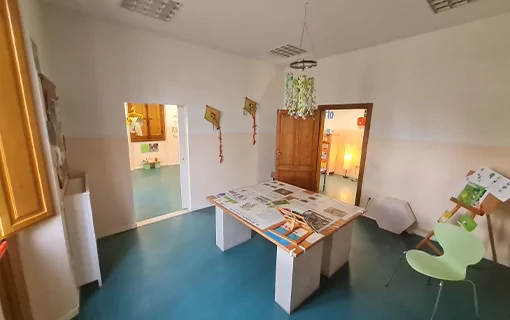
We were able to understand these settings by meeting with the teachers and observing the incredible spaces and environments they create. The settings have no headteacher, and there is no prescribed curriculum. Instead, the education centres emphasize the importance of working with the community, teachers, parents, and grandparents to create valuable social and emotional experiences for children. This allows children to be actively engaged in the world, develop a sense of self and personal autonomy, and become competent individuals. From watching the children interact with their communities, settings and teachers, it is clear this approach achieves these goals.
To conclude the trip, we were fortunate to have the opportunity to meet the pedagogical coordinator of education services in Pistoia. We discussed the foundations of the pedagogies they have implemented, which she told us aim to create a wider system that holds the early years in high esteem.
The educational service prioritises reflection and research to establish effective practices and strives to create a diverse and inclusive environment that is accessible to all children and their families. They consistently ensure that the child’s vision remains at the centre of their educational philosophy.
The opportunity to visit Pistoia has been an incredibly enlightening experience. I feel very fortunate to have gained a glimpse into the unique concepts they have there. I greatly valued the time spent with teachers from different settings. Despite my limited Italian, their passion and dedication in their roles shone through beyond our language barrier. An art teacher said something that deeply resonated with me: “It is my job to teach children to use the love from their hearts to express themselves.” Her statement is something I hope to bring into my practice.
I fell in love with the city of Pistoia. The commitment to accessibility and inclusivity for children and families was everywhere. The culture fosters an environment where children can truly feel like citizens and are respected by the wider community.”
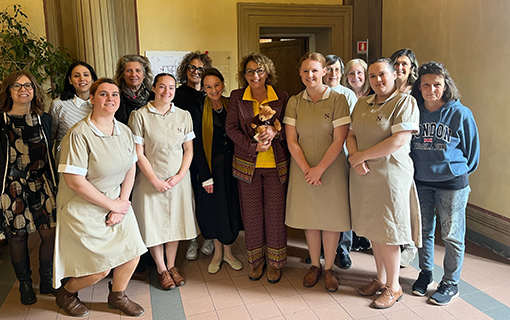
This experience has significantly enriched both my personal and professional perspectives beyond my expectations. Witnessing this cultural approach has allowed me to formulate my own personal philosophy and values for my practice. I have gained a deeper understanding of the importance of building relationships not only with the child but also with their wider families. Recognizing the value that these relationships hold in fostering children’s development and wellbeing has been crucial to my own learning.
I have gained the knowledge that children possess the ability to become competent learners and thrive when guided and empowered by teachers, parents, the community, and their environment. It is therefore crucial to provide children with regular opportunities for play, particularly in areas such as fantasy, imagination, expressive arts, and adventure.
Another aspect of the trip that has profoundly influenced my perspective is the involvement of parents and families in projects and the enhancement of a child’s learning journey. The message that resonated throughout the trip was the uniqueness of each child’s journey and the need to respect and understand it. By working with families and gaining insight into a child’s story, I can personally develop as a practitioner and effectively contribute to their education. This is something I intend to carry with me in the future and incorporate into my practice.”
Read Dr Rose Drury’s article on Early Years Education in Pistoia.
